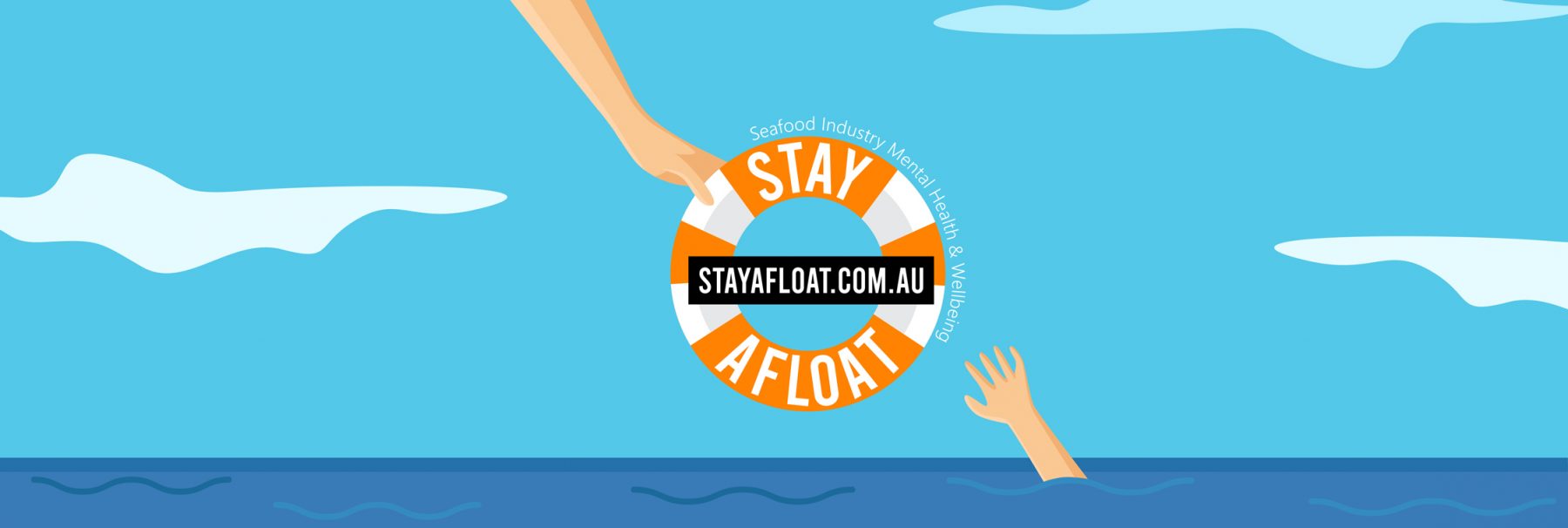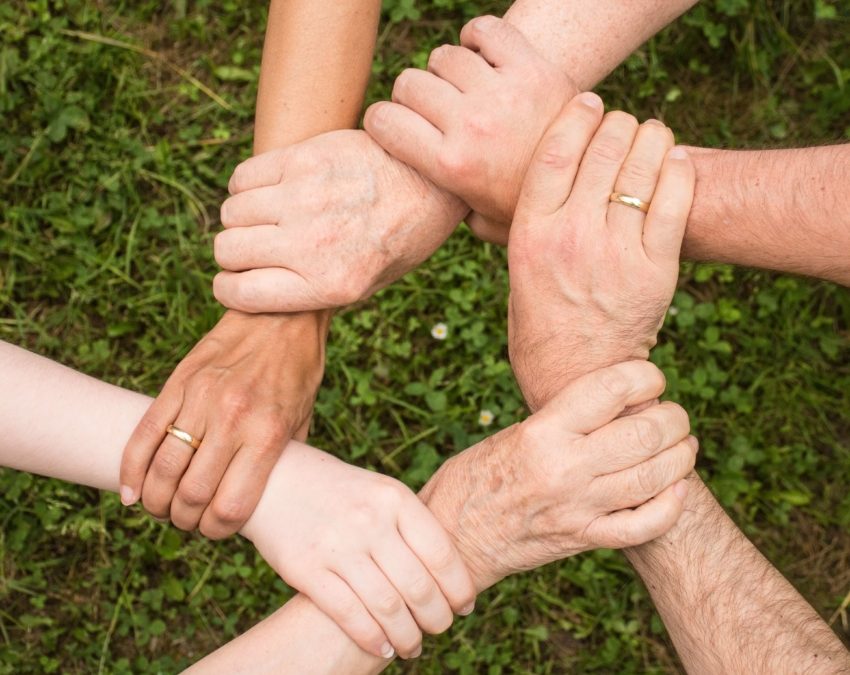Click here for a copy of the Darwin, NT media release.
Click here for a copy of the Lakes Entrance, VIC media release.
Click here for a copy of the Newcastle, NSW media release.
A program focused on mental health early intervention, engagement and education in the Australian commercial fishing industry is being piloted across the country by Seafood Industry Australia (SIA), supported by Women in Seafood Australasia (WISA).
The $600,000 program, funded under the Australian Government’s Mental Health Program, will be run in three target communities providing industry, primary health networks, community leaders and trusted industry advocates with training and resources to assist in better identifying and responding to mental health issues affecting industry participants.
“Research has shown Australia’s commercial fishers experience twice the base-rate of psychological stress than the general population, and this is not okay,” SIA Interim CEO Veronica Papacosta said.
“As part of Seafood Industry Australia’s 2019 Federal Election package we asked for funding to develop the first industry-specific mental health support program just like land-based farmers, mining and construction industries have.
“We understand the pressures our fishers face are unique to industry, and a third of fishers who were suffering psychological stress said they hadn’t reached out for support because they didn’t feel health professionals would understand the pressures of the fishing industry.”
Ms Papacosta said it was evident to SIA that industry needed a specialised program to connect fishers with existing services.
“We knew the supports exist, but our fishers are a stoic bunch and we needed to develop a way that would see them connect,” she said.
“This pilot program has been specially developed to help break the stigma associated with poor mental health within industry, develop a network of trusted industry advocates who fishers could reach out to help them find support, and educate primary healthcare networks about industry pressures.”
With a rich background in mental health engagement and education, SIA has appointed Jo Marshall to manage the two year program, in consultation with a steering committee including Deakin University’s National Centre for Farmer Health research fellow and Primary Producer Knowledge Network lead investigator Dr Allison Kennedy, Deakin University’s Sustainable Fishing Families co-investigator and Sea Change Consulting director Dr Kirsten Abernethy, and Women in Seafood Australasia Victoria Director and Melbourne Seafood Centre CEO Barbara Konstas.
“One of the first jobs has been to work with the national industry to identify three target communities where a localised mental health support program is needed,” Ms Marshall said.
“Following consultation we’ve selected Lakes Entrance, Victoria, Newcastle, New South Wales and Darwin, Northern Territory as our target communities.”
Within these communities, three trusted advocates will be identified to receive mental health first aid training and will act as mental health support coordinators on the ground.
“As the name suggests, these are people who have the ability to build trusting relationships with industry participants,” Ms Marshall said.
“The trusted advocates will provide industry with information and referrals to local support services, and coordinate activities to build awareness of and reduce the stigma of mental illness within their communities.
“I’ll be working hard to find the right trusted advocates, and getting to know the various support providers in the communities and educating them on industry in the region and the unique stresses facing our fishers.
“Whilst it is incredibly important we find immediate and appropriate support for people in crisis, we will equally be working towards providing people with a better understanding of prevention and wellness activities. Just like our physical health and well-being, our mental health and wellbeing can be cared for in an effort to prevent illness.”
The program has been welcomed by industry leaders in the target communities.
“I have now lived in the Lakes community for 10 years and I have found it difficult to watch the State Government end generational fishing livelihoods in order to promote recreational fishing,” South East Trawl Fishing Industry Association (SETFIA) Executive Officer Simon Boag said.
“More recently I have watched Danish seine fishers pushed out of their fishing grounds by a foreign company looking for oil and gas, some to the extent that they’ve just tied-up.
“Fishermen are an incredibly tough bunch, but this must affect them. Very few of them would ever show it which may make their experience even worse.
“Fishermen are physically bullet-proof so I doubt that fishermen would even know how to start to address their mental battles. We are all faced with adversity, but the last few years have been especially tough for the Lakes Entrance fishing community and I am glad that this program has arrived.”
Seafood Industry Victoria CEO Johnathon Davey said commercial fishers are exposed to many mental stressors from uncertainty of access and financial pressures, to the strain of running a business and managing red tape.
“The Gippsland Lakes ex-fishers were subject to extreme mental stress over recent years and this has spread throughout industry with varying levels of uncertainty around long-term security of access and future of industry,” he said.
“The 2018 election decision significantly affected the community in Lakes Entrance.”
Sentiment was echoed by NSW Professional Fisher’s Association’s CEO Tricia Beatty who said the local industry has been under increased strain in recent months.
“Similar to the issues facing our industry across Australia, it boils down to the anxiety and stress faced due to the constant change and variable nature of the industry,” Ms Beatty said.
“The NSW industry has been through a recent large-scale restructure that has caused great anxiety, and this has been coupled by other major issues such as COVID-19, bushfires, floods, seismic surveys and dropped shipping containers causing significant safety issues.”
Northern Territory Seafood Council CEO Katherine Winchester said the program’s unique approach to focusing on industry-specific pressures is appealing.
“There are no dedicated, on-the-ground mental health supports that specifically target NT commercial fishers, processors and farmers,” she said.
“Like most seafood communities there is stress related to uncertainty about future changes to government regulations, access to fishing grounds and red tape.
“Talking about mental health is not always the easiest conversation to have, but now more than ever it is the most important conversation to have. We need to raise awareness and start building a network of support, because the unique challenges are not well understood by those outside the industry.”
SIA will also make available mental health first aid training for national industry leaders, and a series of Community Resilience Grants which will provide funding for industry events to be held where mental health information is available, or a speaker talks about their lived experience.
Ms Papacosta said the pilot program will help to inform ongoing national industry-specific mental health and wellbeing programs, projects and outreach activities.
“We look forward to learning from this pilot around which approaches and strategies work best for the industry,” she said.
“We know our fishers are a proud and stoic bunch who can struggle to admit when they may need to reach out for help. As an industry we need people who are trained to look out for warning signs and know how to approach a conversation with someone regarding their mental health.”
If you, or someone you know needs help contact a crisis helpline:
- Lifeline – 13 11 14
- Beyond Blue – 1300 224 636
- MensLine -1300 78 99 78
- If there is immediate danger please call 000 or visit your nearest hospital emergency department.

